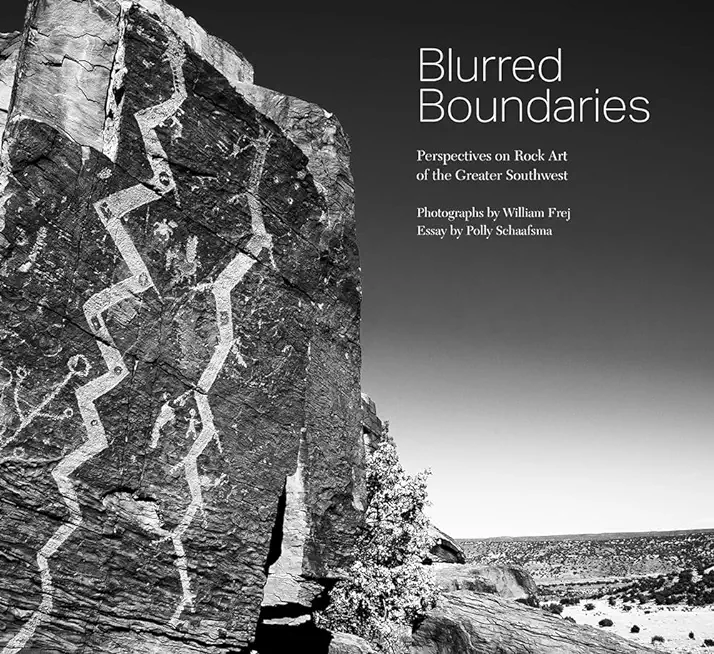
Frej, William
product information
description
ndies Excellence Awards
Juror's Choice Award in Photography, National Indies Excellence Awards
Oliver Award for Excellence in Rock Art Photography, American Rock Art Research Association
Finalist, General Trade Non-Fiction, Reading the West (Mountains and Plains Independent Booksellers Association)
Bronze Medal, Nature Category, IPPY Awards
Honorable Mention, Nature Category, 2023, Indie Book Awards
Gold Medal Recipient in Books for the Budapest International Foto Awards 2023
Gold Medal Recipient in Books for the Tokyo International Foto Awards 2023
Independent Press Award "Distinguished Favorite" (Nature category) 2024 Enigmatic rock art featuring a myriad of symbols and designs can be found throughout remote and arid landscapes of the Greater Southwest, from the Four Corners region of the American West to the Baja California peninsula in Mexico. This vast gallery of ancient art offers intriguing questions. Who created these images on stone and what were their motivations? What do they mean? Are they to be taken literally or might they stand for something else? In this book, William Frej's powerful black and white photographs of rock art in the American Southwest and Baja California provide the opportunity to explore this diverse and mysterious imagery--and to ponder these questions. By framing these images on stone by the expansive landscapes in which they are found, his photographs emphasize the importance of their settings. The accompanying photo captions by noted rock art scholar Polly Schaafsma present clues to the symbolic content of these stone murals. Her essay, "Blurred Boundaries," addresses the ambiguities latent in their complex meanings. To illustrate, Schaafsma addresses several elements of the visual vocabulary of rock art in the region-the spiral, stepped clouds, depictions of the human form, animals, and shields. Schaafsma notes that rock art can be viewed from many perspectives and she suggests that we move beyond Western philosophy to consider an animistic universe in which all things are sacred. In the foreword Frank Graziano also emphasizes how our own beliefs and perceptions influence the way we experience rock art. Rock art is more than a static reminder of the faraway past. The images continue to impact us even today, no matter what our perspective.
Juror's Choice Award in Photography, National Indies Excellence Awards
Oliver Award for Excellence in Rock Art Photography, American Rock Art Research Association
Finalist, General Trade Non-Fiction, Reading the West (Mountains and Plains Independent Booksellers Association)
Bronze Medal, Nature Category, IPPY Awards
Honorable Mention, Nature Category, 2023, Indie Book Awards
Gold Medal Recipient in Books for the Budapest International Foto Awards 2023
Gold Medal Recipient in Books for the Tokyo International Foto Awards 2023
Independent Press Award "Distinguished Favorite" (Nature category) 2024 Enigmatic rock art featuring a myriad of symbols and designs can be found throughout remote and arid landscapes of the Greater Southwest, from the Four Corners region of the American West to the Baja California peninsula in Mexico. This vast gallery of ancient art offers intriguing questions. Who created these images on stone and what were their motivations? What do they mean? Are they to be taken literally or might they stand for something else? In this book, William Frej's powerful black and white photographs of rock art in the American Southwest and Baja California provide the opportunity to explore this diverse and mysterious imagery--and to ponder these questions. By framing these images on stone by the expansive landscapes in which they are found, his photographs emphasize the importance of their settings. The accompanying photo captions by noted rock art scholar Polly Schaafsma present clues to the symbolic content of these stone murals. Her essay, "Blurred Boundaries," addresses the ambiguities latent in their complex meanings. To illustrate, Schaafsma addresses several elements of the visual vocabulary of rock art in the region-the spiral, stepped clouds, depictions of the human form, animals, and shields. Schaafsma notes that rock art can be viewed from many perspectives and she suggests that we move beyond Western philosophy to consider an animistic universe in which all things are sacred. In the foreword Frank Graziano also emphasizes how our own beliefs and perceptions influence the way we experience rock art. Rock art is more than a static reminder of the faraway past. The images continue to impact us even today, no matter what our perspective.
member goods
No member items were found under this heading.
Return Policy
All sales are final
Shipping
No special shipping considerations available.
Shipping fees determined at checkout.







